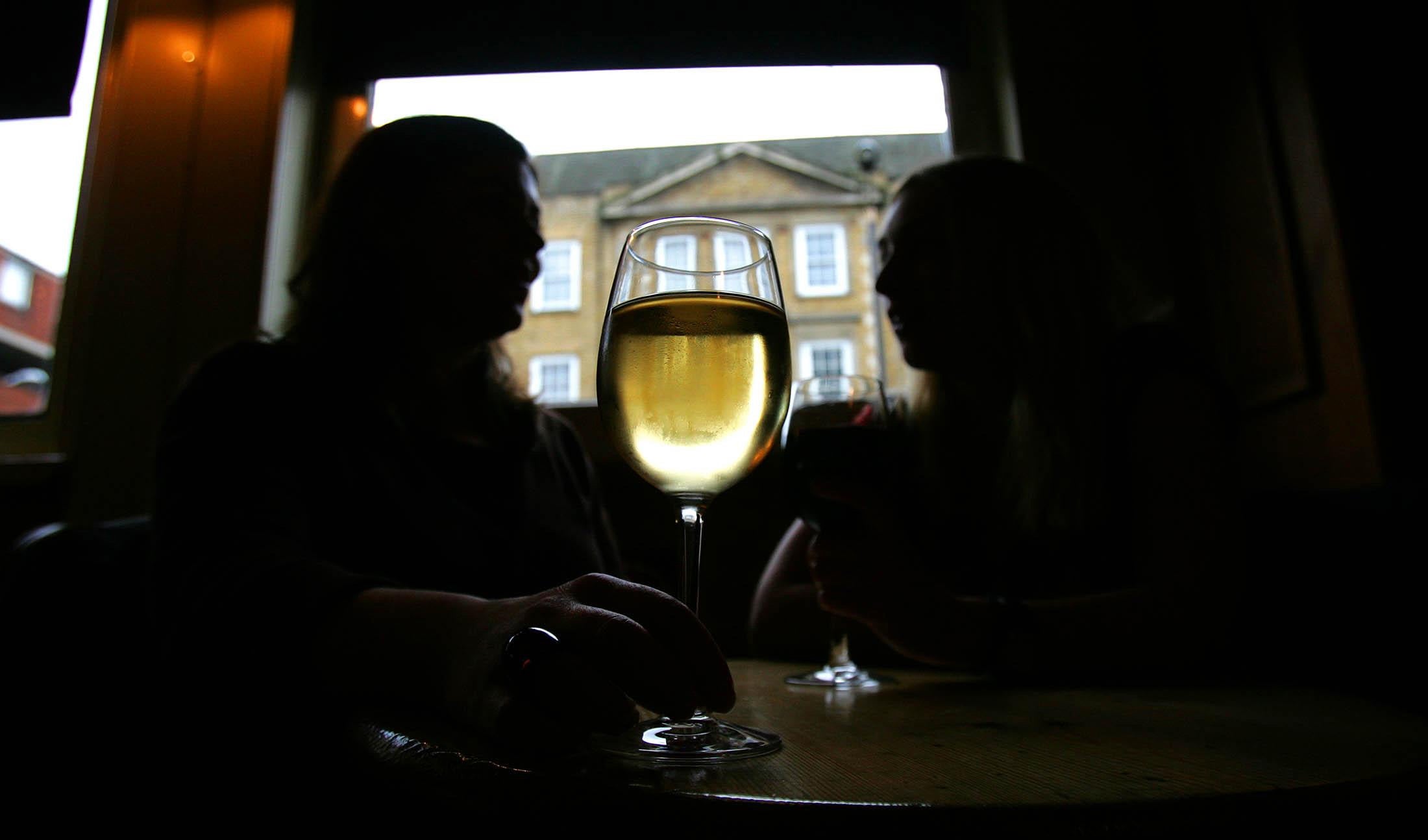Venues with bad track record on spiking ‘must improve to have licence renewed’
Spiking will remain an ‘invisible crime’ unless action is taken to improve awareness, the Home Affairs Committee has warned in a new report.

Your support helps us to tell the story
From reproductive rights to climate change to Big Tech, The Independent is on the ground when the story is developing. Whether it's investigating the financials of Elon Musk's pro-Trump PAC or producing our latest documentary, 'The A Word', which shines a light on the American women fighting for reproductive rights, we know how important it is to parse out the facts from the messaging.
At such a critical moment in US history, we need reporters on the ground. Your donation allows us to keep sending journalists to speak to both sides of the story.
The Independent is trusted by Americans across the entire political spectrum. And unlike many other quality news outlets, we choose not to lock Americans out of our reporting and analysis with paywalls. We believe quality journalism should be available to everyone, paid for by those who can afford it.
Your support makes all the difference.Bars and clubs with a bad track record on spiking should be required to improve if they are to have their licences renewed, MPs have said.
Not enough is being done to support spiking victims and it will remain an “invisible crime” unless action is taken to improve awareness, according to a report by the Home Affairs Committee.
It said it is difficult to know the true scale because a culture of victim-blaming and a lack of co-ordinated support has meant many incidents are going unreported.
But creating a new criminal offence for spiking, which the Government is considering, would make victims more likely to come forward and signal to perpetrators that such behaviour will be punished.
The committee, which held an inquiry into spiking earlier this year, said places where spiking is more likely to occur, such as pubs, clubs and festivals, must be safe for all.
Local authorities and licensing authorities need to ensure that venues have adequate security and staff trained to identify spiking incidents, it said.
And venues with a bad track record on spiking and wider issues relating to violence against women should have improvement measures required as part of their licence renewal.
The MPs also said there is insufficient data on prevalence, location, method, perpetrators and their motivations, which is acting as a barrier to policing.
A public awareness campaign should emphasise the importance of reporting incidents to the police, but victims should also be able to come forward anonymously.
According to a survey run by the committee, 84% of victims said they did not receive support after the first time they were spiked, and 72% said they did not report the incident.
The questionnaire was completed by 1,895 victims and 1,413 witnesses between December 2021 and January 2022.
Most victims were female, with 139 victims identifying as male and 21 people choosing “other”, and most respondents were younger than 25, although victims of all ages took part.
Nightclubs were the most common venue where spiking was reported to have taken place, followed by pubs and private parties.
The committee said victims’ access to forensic testing is poor, and the Government must place a duty on all police forces to provide quick testing of a quality that can be used as evidence in court.
It isn’t good enough to tell people to put lids on their drinks or normalise taking a testing kit out with you. Everyone should have the right to go out and enjoy themselves without fear.
The Government should commission research to aid understanding of spikers’ motives, and improve the prevention of attacks.
The low number of successful prosecutions means there is no clear deterrent for spikers, so the Government should examine what barriers exist and devise strategies to overcome them.
Home Affairs Committee chairwoman, Dame Diana Johnson, said victims are often left with feelings of “self-doubt and vulnerability” as they have little idea what happened or who spiked them.
“It isn’t good enough to tell people to put lids on their drinks or normalise taking a testing kit out with you,” she said. “Everyone should have the right to go out and enjoy themselves without fear.
“The message needs to be sent to perpetrators that spiking is absolutely unacceptable and will be punished.”
Safeguarding Minister Rachel Maclean said: “Spiking is a cowardly act which can ruin lives, so I welcome this report and will carefully consider every recommendation.
“The Home Secretary has confirmed the Home Office is looking at how best to prepare a specific criminal offence and has asked the National Police Chiefs’ Council to urgently review the extent and scale of the issue.
“We have already reclassified GHB and introduced harsher sentences for anyone found with this spiking drug on them without cause. And are not afraid to legislate if it will help the police and courts better tackle the issue.”